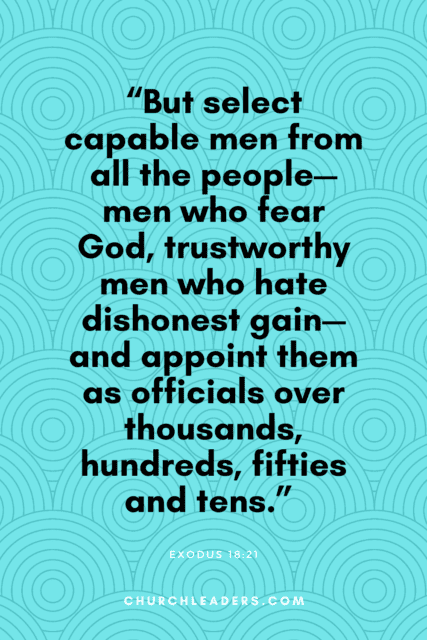Have you ever come to the end of your workday, or even a workweek, and asked yourself, “What did I accomplish?” You certainly did not have a highly productive day.
You know you showed up, went to meetings, worked hard, but somehow, sometimes, wonder if you really accomplished much.
You are not alone.
The good news is that there is something you can do about it.
It’s always important to start with the big picture in mind. Or as Stephen Covey has said, “Start with the end in mind.” If you don’t know where you’re headed or where you want to go, you will likely arrive somewhere else. Somewhere you don’t want to be.
At some point, however, you live out those big-picture goals based on very practical plans, one day at a time.
Admittedly, the five questions are relatively simple on the surface, but underneath they are complex, and the discipline to execute daily is not so easy. That’s one of the reasons that question number five is so important. We’ll get to that.
Before the questions, let me briefly cover three things that block highly productive days.
Distraction Blocks Highly Productive Days
The source of distraction is internal. That means it’s from within you. It can be anything from social media to doing the things that you like to do rather than the things that are required of you. The remedy is learning to focus and focus in particular on what is important.
Disruption Blocks Highly Productive Days
The source of disruption is external. Disruption comes from others around you. Being disrupted from your focused work is part of life and leadership. It’s going to happen. Your ability to handle it with poise and firm resolve enables you to greatly increase your productivity. The remedy is learning to gracefully say no, postpone the request or handle something important quickly.
Direction Blocks Highly Productive Days
The source of direction must be unified. You may be the visionary source of the direction, or you may be enthusiastically supportive, but either way, the people you lead must also buy into the direction you are all attempting to go, or you’ll end up going in circles or stuck.
In terms of productivity blockers, I mean more accurately, directionless, or multi-directions. Without an agreed-upon crystal clear direction, productivity is nearly impossible.
5 simple questions for a highly productive day.
1) What are you required to do?
Always start with the most critical projects and appointments with people that align with what you are required to do, and that produce the greatest return for your investment of time and energy.
Leaders who get things done, but not the right things slowly become ineffective.
Productivity is not assessed merely by how much you do, but if you do the right things that produce the greatest return. Even if you don’t finish your to-do list, this will increase your productivity dramatically.
As you deliver increasingly higher levels of quality and excellence in what you accomplish, your leadership begins to create space and freedom to do a little more, over time, of what you want to do.
2) Who did you help?
Long term legacy leadership in the church never takes place without helping people. Don’t fall prey to becoming an event planner with a theological degree.
Ultimately our spiritual responsibility is to lead people to Jesus and see an eternal transformation. Facets of this happen from the boardroom working on a strategy to out in the community with those who are far from God.
Bottom line – always think people.
At the end of each day, ask yourself:
- Who did I encourage?
- Who did I strengthen with wisdom?
- Who did I train with helpful skills?
- Who did I take a developmental moment with to coach their leadership?
- Who did I bless with compassion, whether a staff member or a homeless person?
You get the idea; how did you add value to people?
It’s not likely that you can do all these things in one day, but don’t go a day where your leadership touches no one.
3) What did you complete?
This can be a discouraging or invigorating moment. A moment, literally sixty seconds, where you jot down what you accomplished.
Sometimes you finish something, and many days you advance something just a little further. All progress counts, as long as you remain focused on what is required, what is important, and what produces the greatest return.
This is where your ability to handle distractions, disruptions, and remain headed in the right direction is essential.
If your day was unproductive and maybe discouraging, shake it off, and start fresh and focused the next day.
It is smart to make a list the night before of what you want to accomplish. Remember the old adage, if you don’t plan your time, someone else will.
4) What did you learn?
Don’t skip this step, and don’t make it complicated.
This can take two or three minutes, maybe five. When you reflect on your day from what you learned in prayer and Scripture, to perhaps a difficult conversation with someone, crystalize what you learned.
The goal isn’t to make a long list. The purpose is to focus on the most significant thing you learned – that you will apply. Even just one a day is a lot over a year. I have found that I “re-learn” many things over the course of a year. The Holy Spirit makes things fresh and new as I lead at greater levels.
It might be something you read in a book or a blog. It might have been something you wouldn’t do again in a talk. It might be a deep truth that came from confession; it might be a pearl of wisdom from a friend.
If you are looking for what you learn, there is much there for you, even in a single day.
5) Why did you do it?
Motivation is a powerful subject in the life of a leader.
“Why do you do what you do?” That is an important question. Yes, in part, we do much because it is required. That’s why it’s so important to be in the exact place God wants you, with leaders you trust.
But let’s be honest about the “why.” There’s nothing wrong with a bigger church, greater opportunity, and reward for your hard work, as long as that’s not your primary motivation.
When motives turn inward for personal gain and a serving heart turns to the presumption of entitlement, any leader is in the danger zone. Guard your heart!
This may not be likely, but it can happen to any of us!
Instead, remind yourself often of why God called you to serve others. Reflect on why He gave you an opportunity to lead.
“Why” is always an important question.
And from me to you, I hope and pray that what you do also rewards you with great joy.
Scriptures to reflect on for a highly productive day:
This article about keys to a highly productive day originally appeared here.


















